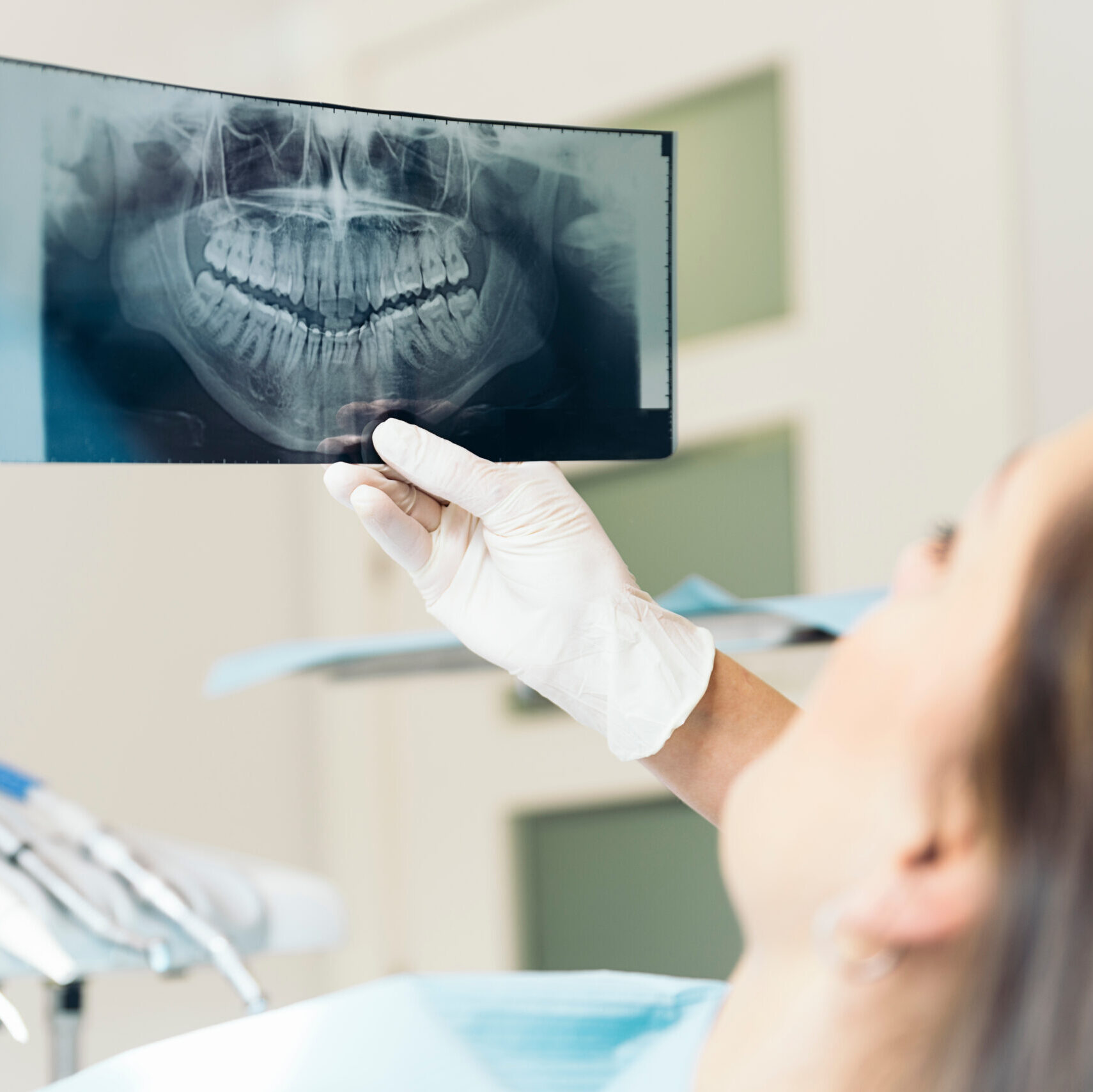
Get Relief for TMJ Pain and Migraines
Do you suffer from migraines or migraine-type headaches? Does your jaw feel tight or produce a clicking noise every time you open your mouth? Suffer from neck pain or frequent earaches? TMJ can cause a wide variety of mild to severe symptoms, form jaw clicking to soreness to sharp pain, headaches, and can “lock” your jaw open or shut. Talk to Dr. Hawk about these symptoms.
Headaches and facial pain often originate from your temporomandibular joint (TMJ) and can be addressed and eliminated through a series of treatments, including Botox.
Contact us to schedule a consultation. Or let your hygienist know about this issue during your next routine visit and we’ll discuss the next steps.
Neuromuscular Dentistry
Neuromuscular dentistry is the type of dentistry that focuses on the muscles that move the jaw, and how the jawbone and bite is aligned to function properly. The key to comfort and stability is harmony between the muscles, bones, and teeth with respect to the rest of your body. Dr. Hawk is an expert bite specialist.
When your jaw alignment or bite is not correct and the jaw muscles are not able to relax as they should in their normal position, pain begins to develop around the temporomandibular joint and its surrounding muscles. When this happens, it is referred to as Temporomandibular joint dysfunction (TMJ or TMD). If you’re suffering from TMJ, we can help Dr. Ronald Hawk has treated many patients in the Boca Raton area and beyond and he would be glad to do the same for you.
If you are located in the Boca Raton area and would like to get relief from TMJ/TMD, contact us today to schedule a TMJ consultation.
Frequently Asked Questions
What is TMJ disorder?
The TMJ is the joint that allows you to speak and chew normally.
Temporomandibular joint disorder (TMD) is caused by problems in your jaw, facial muscles, and joints.
What are the symptoms of TMJ disorder?
Be aware of the common TMJ symptoms, including:
- Chronic headaches and migraines
- Jaw Joint pain or locking
- Clicking sound in your jaw
- Discomfort while chewing
- Dull ache in the ear and sinus pain or ringing in the ears (tinnitus)
- Muscle spasms in the neck, back or shoulders
- Hearing or vision difficulties
- A change in the way the lower teeth fit together or a bite that feels “off”
What causes TMJ disorder?
- Your jaw disk erodes or moves out of proper alignment
- The Cartilage of your TMJ is damaged by arthritis
- Damage caused by a blow or other impact
- Teeth grinding (bruxism) or clenching
- Arthritis
- Certain connective tissue disorders
- Stress
- wear and tear due to aging
If you experience any of the above symptoms, it is not wise to ignore them or attempt to cope with them on your own. The problems can get worse without warning, and permanent damage to the joint can result, which may require surgery.
Clenching & Grinding
Bruxism is the medical term for grinding or clenching your teeth. When this excess muscle activity occurs at night, it is called grinding; when it occurs during the daytime, it is called clenching. Grinding and clenching cause the muscles that control the jaw to be overworked. The muscles then get fatigued and go into spasm. That is when the pain begins. The exact cause of this overactive masseter muscle action is not precisely known, but it is usually attributed to stress or tension. Persistent grinding or clenching of teeth can cause TMJ. Tooth damage may also occur from the wear on the occlusal surfaces.
Treatment Options
Traditional therapies for TMJ include nighttime splints to protect the teeth and medications that decrease inflammation in the muscle or cause it to relax through a sedative approach.
A bite splint, or night guard, is a custom-fit bite guard that significantly reduces and often eliminates the intensity of jaw clenching that leads many to suffer from headaches, migraine pain, or painful jaw joint problems. It is worn during sleep or whenever tension is felt in the jaw muscles, allowing the muscles to rest. There are different styles of night guards available.
Another treatment to consider is BOTOX. Repeated BOTOX injections in the masseter muscle can reduce the size of this large muscle over time, improving external appearance and reducing muscle-clenching pain symptoms.
How to treat TMJ pain
Botox is one of our most-recommended treatments for TMJ disorder. Tight muscles are often the cause or a contributing factor to your TMJ issues. Botox relaxes your jaw muscles, eliminates tension in your mouth, and prevents grinding and clenching.
Thanks to Botox treatment, many of our patients are now headache free after decades of suffering. Even if your migraines or headaches are more complex and involve more than just your muscles, Botox can eliminate the portion of your pain that comes from these muscles and might offer you some relief from your suffering. Botox injections in the masseter muscle can actually reduce the size of this large muscle over time, improving external appearance and reducing muscle-clenching pain symptoms. Massage of the muscles, moist heat and even physical therapy can also help.

Other TMJ Treatment Options
- Occlusal Splints- custom made and advanced “night guards” prevent clenching and reposition your jaw to a more favorable and comfortable position.
- Clear Correct – If a bite issue is the cause of your TMJ pain, we may recommend Clear Correct to fix the alignment of your jaw.
- Surgery – In rare situations, you may require a more advanced surgical treatment to correct the issue. If that’s the case, we can refer you to someone who can provide the care you need.
What to expect from your TMJ disorder diagnosis & treatment
If you’re dealing with jaw pain or headaches, let us know.
- We’ll ask questions to learn as much as possible about what’s bothering you. Our goal is to understand the location, onset, timing, and aggravating factors of your TMJ pain and migraines.
- Conduct a gentle TMJ evaluation, including observation, range of motion test, joint palpation, and facial muscle exam.
- Take 3D x-rays to help visualize what’s going on in your mouth and jaw.
- Recommend treatment options, including outlining cost and what to expect
We want to help you relieve your pain and get more enjoyment out of life. We are happy to help you put your best smile forward.
To find out more about the different TMJ treatment options available, contact Hawk Dental Artistry today to schedule a complimentary cosmetic consultation.


